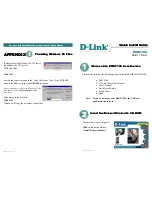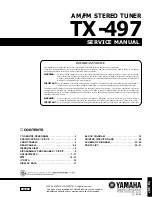
PAGE 14
TUNING
Basic Tuning Operation
A tuning cycle on the AT-200ProII is initiated from either the
Tune
button on the front of the
AT-200ProII, an over-SWR condition when in fully automatic tuning mode, or from pressing the
TUNER/CALL
button on the front of an ICOM radio connected using the ICOM interface
cable. Two types of tuning cycles are available.
A
memory tuning cycle
attempts to tune quickly, based on having previously tuned on the
present frequency selection. If the tuner previously was successful in tuning on the currently
selected frequency, the settings from that match will be loaded into the tuner relays, and checked
to see if an acceptable SWR level is found using these memorized settings.
Memory frequency step sizes vary with the selected band. Steps are very close together on
the lower bands, to accommodate the typically higher-Q antennas for those bands, while step size
is somewhat larger on the higher (17 meters and up) bands, where antenna Q is typically lower.
A
full tuning cycle
“starts from scratch,” and begins a fixed tuning sequence, where the AT-
200ProII rapidly tries varying combinations of inductance and capacitance values, and then
zeroes-in on the best match possible. When the tuning cycle is complete, if an acceptable match
was found, the inductance and capacitance settings are saved in a memory associated with the
selected frequency and antenna, so that they may be recalled quickly in the future via a memory
tuning cycle.
In this manner, the AT-200ProII “learns;” the longer you use it, the more closely it adapts
itself to the bands and frequencies you use. Most users will probably use memory tuning most of
the time; it takes advantage of any saved tuning settings, but automatically defaults to a full
tuning cycle if no stored data is available.
Manual Memory Tune
To initiate a memory tuning cycle at any time, press and hold the
Tune
button for 0.5 to 2.5
seconds (medium button press) and release. The LED bargraph display will show the following
pattern to indicate a memory tune cycle is selected:
If you are using the optional ICOM or Yaesu interface cable, your radio will automatically
reduce power, switch to CW mode, and transmit for as long as is needed to complete the tuning
cycle, and then will return to the previous operating mode and power level when done.
Summary of Contents for AT-200PROII
Page 8: ...PAGE 8...













































